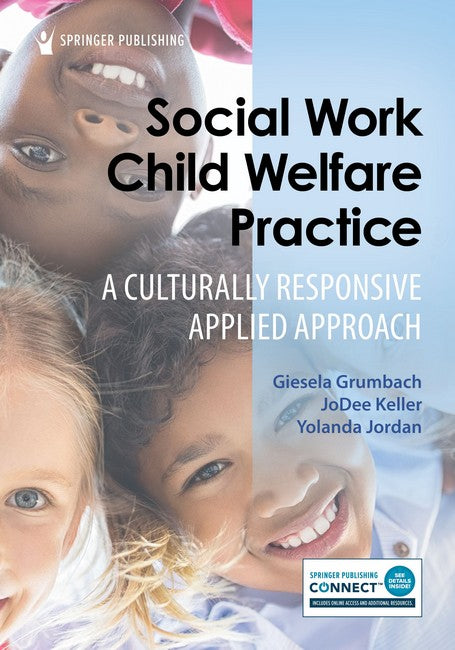Description
List of Contributors
Preface
Acknowledgments
Springer Publishing ConnectTM Resources
SECTION I. CHILD WELFARE HISTORY AND SERVICES
Chapter 1. Overview and History of Abuse and Responses to Abuse and Neglect in Child Welfare Practice
Chapter 2. Types of Abuse and Neglect in Child Welfare Practice
Chapter 3. Careers in Child Welfare
Chapter 4. Policies Affecting Child Welfare Practice
SECTION II. CHILD WELFARE PRACTICE
Chapter 5. Decolonizing Child Welfare: Social, Economic, Environmental, and Racial Justice
Chapter 6. Engagement and Assessment
Chapter 7. Placement Disruption and Family Reunification
Chapter 8. Foster Care and Adoption in Child Welfare Practice
Chapter 9. Addressing the Needs of Foster Children in School Settings
Cassandra McKay-Jackson, Sara Castillo, Arely Cerda, and Eric Velasco
SECTION III. SPECIAL ISSUES IN CHILD WELFARE
Chapter 10. Special Topics in Child Welfare Practice
Chapter 11. Trauma-Informed Practice for Child Welfare
David A. Simpson and Verónica Rodríguez Bailey
Chapter 12. Secondary Traumatization and Self-Care for Child Welfare Professionals: Preventing Burnout
Verónica Rodríguez Bailey and David A. Simpson
SECTION IV. VISIONS FOR TRANSFORMATION OF THE CHILD WELFARE SYSTEM: PUTTING CHILDREN AND FAMILIES FIRST
Chapter 13. Looking Forward: Putting Children and Families First
Index
Giesela Grumbach, PhD, LCSW, PEL (IL), is the Chair of the Department of Social Work at Governors State University. Her work experience spans 35 years working in schools, medical and legal settings, as well as private practice. Dr. Grumbach provided counseling services for parents seeking reunification with their children as a subcontractor of child welfare agencies. Dr. Grumbach has also provided court testimony for clients seeking family reunification due to involvement in the child welfare system. Additionally, she provided clinical supervision to child welfare professionals seeking licensure post-graduation from an accredited MSW program through an Illinois Department of Children and Family Services (IDCFS) and Governors State University partnership. Dr. Grumbach is the past president of the National Association of Social Workers, Illinois Chapter (2005–2007). She continues to engage in professional associations through the NASW and the Council on Social Work Education (as a reviewer of MSW minority fellowship applicants).
JoDee Keller, PhD, LICSW (WA), is a Professor Emerita of Social Work at Pacific Lutheran University, where she taught for 34 years. Dr. Keller has explored comparative child welfare, examining child welfare practices in both European and Caribbean countries. Dr. Keller has conducted research on child abuse prevention and help-seeking behavior as it relates to ethnic diversity and income status, as well as exploring supports and barriers for parents who are seeking assistance with parenting. Dr. Keller maintains her involvement with NASW; the Council on Social Work Education, where she is a re-accreditation site visitor; a local school district; and a Washington State Educational Service District, where she is a member of a multidisciplinary team providing professional training for applicants seeking school certification.
Yolanda Jordan, MSW, LCSW, is a highly seasoned practitioner with over 32 years in child welfare service. Ms. Jordan has worked in various positions within child welfare, including case management, clinical services, and the juvenile court. She also has been a supervisor and manager for foster care placement teams. Ms. Jordan received a departmental award, Outstanding Child Welfare Administrator, and recognition from NASW-IL-Calumet District (Emerging Leader Award, Social Worker of the Year). She is a licensed clinical social worker and private practitioner serving children, families, and couples. Ms. Jordan is currently a Program Manager for Cook County Agency Performance in Illinois, where she manages supervisors, provides direction for clinical competency, community and inter-agency relationship building, professional development, and program improvement through measurable outcomes.

